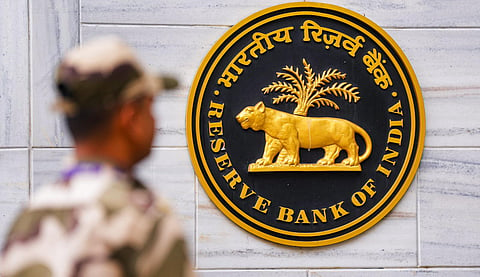

CHENNAI: In revised guidelines issued by the Reserve Bank of India (RBI) on inoperative bank accounts, the regulator has advised banks to take an annual review of an account when there are no customer-induced transactions for more than a year.
For deposits, if the customers have not withdrawn the proceeds after maturity or transferred these to their savings account, the banks should review them. The focus of the RBI guidelines is also to curb fraudulent transactions through inoperative accounts. For this it has asked banks not to allow any debit transaction in an inoperative account unless there is a customer induced activation.
Further, banks have been asked to consider imposing a cooling-off period on reactivation, with restrictions on the number and amount of transactions, as may be applicable for newly opened accounts with the bank. “The banks shall ensure that there is no unauthorised access to customer data pertaining to the inoperative accounts. The banks shall also ensure that adequate steps are taken to prevent data theft and related misuse for fraudulent purposes,” says the new guidelines.
RBI’s guideline states that the bank should inform account or deposit holders and mention that the account would become ‘inoperative’ if no operations are carried out during the next year and, the account holder would be required to submit KYC documents for reactivating the account. If the customers didn’t respond the bank needed to enquire their whereabouts.
In case of a response, the banks could classify the account as operative for one more year (extended period) and the account holder will be asked to operate the account within a year. “In case the account holder still fails to operate the account within the extended period, the banks shall classify the said account as an inoperative account after the expiry of the extended period.”
Only customer-induced transactions and not bank-induced transactions will be considered for an account
to be operative.The guidelines require banks to classify deposits which have not been operated for ten years as unclaimed and transfer the same to Depositor Education Awareness (DEA) fund maintained by the Reserve Bank of India.
As per RBI’s circular, the new guidelines will come into effect from April 2024 and carried by all scheduled commercial banks (SCB) including regional rural banks (RRB) and cooperative banks. RBI said this was meant to reduce the quantum of unclaimed deposits in the banking system and return such deposits to their rightful owners or claimants.
97.38% Rs 2,000 notes returned to banking system
NEW DELHI: The Reserve Bank of India (RBI) on Monday said that nearly 97.38 per cent of the Rs 2,000 bank notes have been returned to the banking system, and only about Rs 9,330 crore worth of the notes are still with the public. On May 19, the central bank announced the withdrawal of Rs 2,000 denomination bank notes from the circulation. Thus, 97.38 per cent of the high-value currency in circulation as of May 19, 2023, has since been returned to the banking system, the banking sector regulator added. “The Rs 2,000 bank notes continue to be legal tender,” the RBI added.